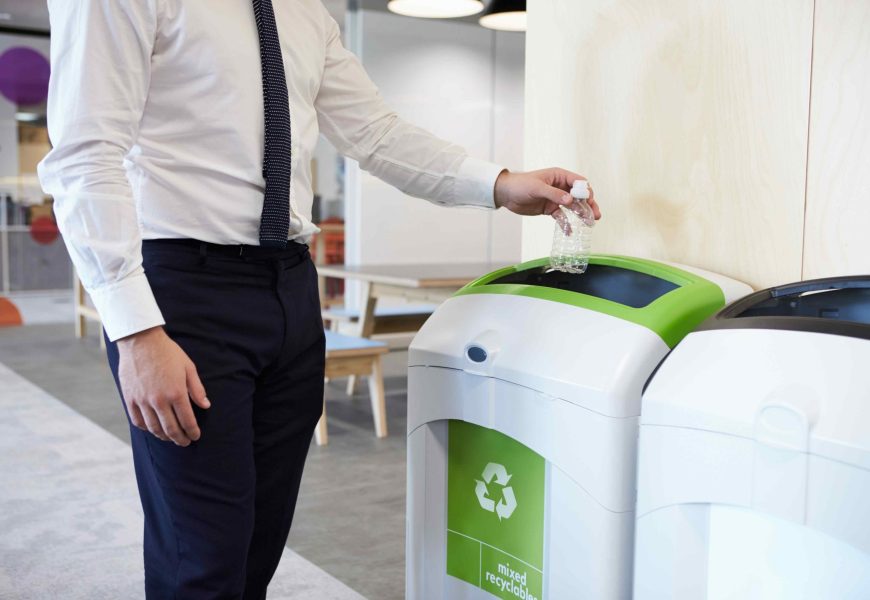In a world grappling with the environmental impact of excessive waste, adopting sustainable practices for waste reduction and recycling is not just a choice but a necessity. As the global population grows, so does our collective responsibility to manage waste in a way that minimizes its impact on the planet. In this article, we’ll explore practical and impactful sustainable practices that individuals and communities can embrace to move towards a zero-waste future.
**1. Embrace the 5 Rs: The traditional 3 Rs—reduce, reuse, and recycle—have expanded to include refuse and rot. Embrace the 5 Rs as a comprehensive guide to sustainable waste management:
- Refuse: Say no to single-use plastics and unnecessary packaging.
- Reduce: Minimize consumption by opting for durable, long-lasting products.
- Reuse: Choose reusable items over disposable ones whenever possible.
- Recycle: Properly sort and recycle materials to divert them from landfills.
- Rot: Compost organic waste to enrich soil and reduce methane emissions from landfills.
**2. Practice Precycling: Precycling involves making conscious choices before acquiring items to prevent waste at the source. Consider the packaging of products and choose items with minimal or eco-friendly packaging. This proactive approach helps reduce the need for recycling or disposal altogether.
**3. Choose Sustainable Packaging: Support brands that prioritize sustainable packaging. Look for products with minimal, compostable, or recyclable packaging materials. Some companies are even transitioning to innovative packaging alternatives, such as plant-based plastics or reusable packaging systems.
**4. Master the Art of Composting: Composting is a powerful way to divert organic waste from landfills and create nutrient-rich soil. Establish a composting system at home for fruit and vegetable scraps, coffee grounds, and yard waste. Composting not only reduces methane emissions but also contributes to healthier soils.
**5. Participate in Community Recycling Programs: Engage with local recycling programs and facilities to ensure that you’re properly disposing of recyclable materials. Familiarize yourself with the accepted materials and the recycling guidelines in your community. Many municipalities also offer curbside recycling services for added convenience.
**6. Become a Recycling Guru: Educate yourself on what can and cannot be recycled in your area. Different regions have varying recycling capabilities, and being well-informed helps you avoid contaminating the recycling stream with non-recyclable items. Pay attention to recycling symbols and codes on packaging.
**7. Say No to Single-Use Plastics: Single-use plastics, such as straws, utensils, and bags, contribute significantly to environmental pollution. Make a conscious effort to reduce your reliance on single-use plastics by using reusable alternatives like stainless steel straws, bamboo utensils, and cloth bags.
**8. Invest in Reusable Products: Transition to reusable products to minimize waste generation. Invest in reusable water bottles, coffee cups, shopping bags, and food containers. These items not only reduce waste but also save money in the long run.
**9. Host or Join a Clothing Swap: Clothing waste is a major contributor to landfills. Host or participate in clothing swaps to give pre-loved garments a new lease on life. Swapping clothes with friends or at community events reduces the demand for new clothing production.
**10. Practice Responsible E-Waste Disposal: Electronic waste (e-waste) poses environmental hazards due to its toxic components. Dispose of old electronic devices responsibly by utilizing e-waste recycling programs. Many electronics retailers and recycling centers offer e-waste drop-off services.
**11. Support Circular Economy Initiatives: Embrace the concept of a circular economy, where products are designed to be reused, refurbished, remanufactured, and recycled. Support businesses that prioritize circular economy practices and minimize the use of finite resources.
**12. Donate Unwanted Items: Before discarding items, consider donating them to local charities or thrift stores. Items like furniture, clothing, and household goods can find new homes through donation, reducing the overall volume of waste.
**13. Educate and Advocate: Share your knowledge about sustainable waste practices with friends, family, and your community. Advocate for responsible waste management policies and practices at local and national levels. Encourage others to join the movement towards a more sustainable and circular approach to waste.
**14. Practice Mindful Consumption: Adopt a mindful approach to consumption by considering the lifecycle of products before purchasing. Choose products that are made with sustainable materials, have minimal environmental impact, and are designed for longevity.
**15. Join or Start a Zero-Waste Community: Connect with like-minded individuals in your community by joining or starting a zero-waste group. Share tips, resources, and support to collectively reduce waste and inspire positive change within your community.
In conclusion, sustainable practices for waste reduction and recycling are integral to building a more resilient and environmentally conscious future. By adopting these practical guidelines, individuals can contribute to the global effort to minimize waste, conserve resources, and create a healthier planet. Every small action, when multiplied across communities, has the power to drive significant change and pave the way towards a zero-waste future.


















